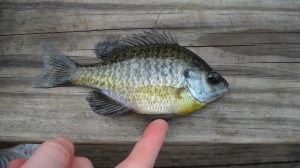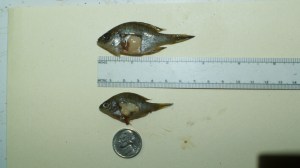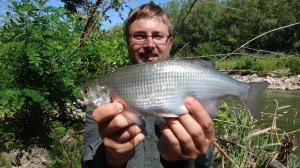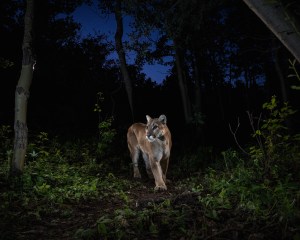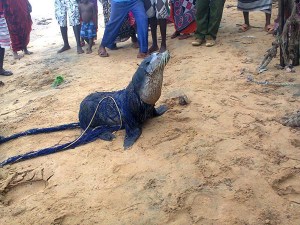Director of Science Communications
Page 46
-
Restoring the Reef on Lake Michigan Benefits Native Fish
Reef restoration calls to mind corals and colorful fish. But Lake Michigan has reefs too — and they're also vitally important to native fish. A new effort is looking to bring them back.
Matthew L. Miller
-
Why Everything You Know About Bluegill Management is Wrong
Every angler knows that if you don’t remove enough bluegills from a pond, they’ll overpopulate and become stunted. But new research says that idea is usually wrong, and the opposite may be true.
Matthew L. Miller
-
Big Battles, Big Gonads: The Crazy World of the Bluegill Spawn
The common bluegill is easy to take for granted. But come spawning season, a bluegill colony is one of the wildest scenes in nature: part barroom brawl, part cheesy ‘80s romantic comedy.
Matthew L. Miller
-
Obsessed by Nature: The World of Fishy Life Listing
Most anglers are content with their bass and trout. But some want to catch…everything. Welcome to the world where fishing meets life listing.
Matthew L. Miller
-
Camera Trap Meets Studio Lighting: Stunning Images and the Story Behind Them
Camera traps provide important scientific evidence of creatures that we seldom see, but the usual camera trap pictures are not quality wildlife art. Enter Jonny Armstrong.
Matthew L. Miller
-
Wolf? Coyote? Coywolf? Understanding Wolf Hybrids Just Got a Bit Easier
Gray wolf, red wolf, coywolf, coydog. Wild canine taxonomy can be confusing -- and often comes with a heavy helping of folklore. But what does the science really say?
Matthew L. Miller
-
This Fur Seal is 4,000 Miles From Home. Here’s Why.
A Subantarctic fur seal sets a new distance record. How did this critter get so far from home?
Matthew L. Miller
-
Bontebok Can’t Jump: The Most Dramatic Conservation Success You’ve Never Heard About
It's a story largely forgotten: Bontebok, an antelope endemic to the South African Cape, were once reduced to 17 animals. What saved them? The answer will surprise you.
Matthew L. Miller

